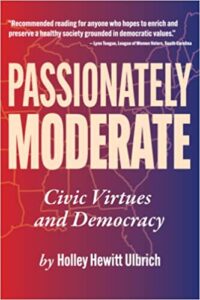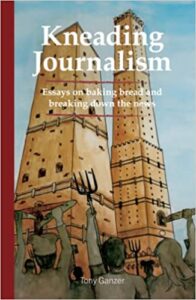
By Andy Brack | Baseball legend Yogi Berra used to say a lot of things that were a little odd and funny, but they often had little – and big – kernels of truth.
 When considering what’s happening across America in politics these days, this Yogi-ism seems particularly insightful: “If you don’t know where you are going, you might wind up someplace else.”
When considering what’s happening across America in politics these days, this Yogi-ism seems particularly insightful: “If you don’t know where you are going, you might wind up someplace else.”
The notion of feeling somewhere else – not the America of just a decade ago – seems to be permeating a politics where people don’t listen to or appreciate others’ perspectives. Politics has become a spectator bloodsport where liberals and conservatives seem hellbent on pursuing “my way of the highway” solutions on everything from not defaulting on the national debt or changing immigration policy to abortion and people’s rights to live like they want.
 Retired Clemson economics professor Holley Ulbrich offers a new book, Passionately Moderate, that fingers the need of polarized parties and tribes to talk, engage and compromise to practice real American democracy. If people don’t negotiate, listen and compromise, the American experiment in ideas of freedom imbued in the Constitution is weakened.
Retired Clemson economics professor Holley Ulbrich offers a new book, Passionately Moderate, that fingers the need of polarized parties and tribes to talk, engage and compromise to practice real American democracy. If people don’t negotiate, listen and compromise, the American experiment in ideas of freedom imbued in the Constitution is weakened.
“In a democracy, unlike other forms of governance, each citizen’s needs, wants, preferences and opinions count for one and only one. One person, one vote,” she writes.
“Ignoring the rights, the concerns, the needs of one individual or group by giving undue preference to others undermines faith in the democracy and paves the way for some form of autocratic rule – fascism on the right, communism on the left and ideology-free totalitarianism anywhere on the spectrum.”
Perhaps that’s why many Democrats feel like they’ve been run over by a bulldozer driven by mostly white male Republicans pushing bans on abortion. Or Republicans feel President Joe Biden is being unreasonable on not making some budget cuts (ironically made necessary by lots of Republican spending and rich-guy preferential treatment during the Trump era).
Part of this national political disconnect among the people is due to an increasing cynicism by many about the media, which exists to report truths about those in power and to tell stories to connect us. But as the media diversified thanks to the Internet and traditional outlets got smaller, unsavory publishers – and some governments – worked to spread disinformation and misinformation, all of which are straining the American democratic process.
 “Information can breathe insight into a populace hungry for life, liberty and a pursuit of happiness, and this supports the idea of information being a source of power,” writes longtime Ohio journalist Tony Ganzer in a new book, Kneading Journalism.
“Information can breathe insight into a populace hungry for life, liberty and a pursuit of happiness, and this supports the idea of information being a source of power,” writes longtime Ohio journalist Tony Ganzer in a new book, Kneading Journalism.
“[But] the direct manipulation of information, and a press which might distribute it, is thus a way to foster distrust and quell tools of accountability.”
Both books deal with sadly ebbing fundamentals for a stronger democracy. Ulbrich argues individuals need to passionately engage in moderation in politics to get acceptable outcomes – maybe not the best every time, but outcomes that are good enough for now. Through reason and compromise, things can move forward, even though everybody isn’t likely to be completely satisfied.
She writes that among virtues necessary for civil society to survive are acceptance, respect, prudence, honesty, fairness, justice, engagement, generosity, patience and courage. In other words, people should act like grownups and listen. Is that too much to ask of all citizen-patriots, regardless of party or point of view?
Similarly, Ganzer pushes the media, which provide information to allow citizens to make good decisions in their democracy, to be socially responsible by sticking to news fundamentals.
“Stories are meant to be told clearly, accurately and concisely,” he wrote. “Do research. Account for cultural nuance. Consider your own bias. Confirm information: sometimes people manipulate the truth or out-right lie.”
As citizens, let’s strive to embrace moderation and compromise. As news consumers, let’s demand truth, accuracy and broader information.
Andy Brack, recognized in 2022 as the best columnist in South Carolina, is editor and publisher of Statehouse Report and the Charleston City Paper. Have a comment? Send to: feedback@charlestoncitypaper.com.


